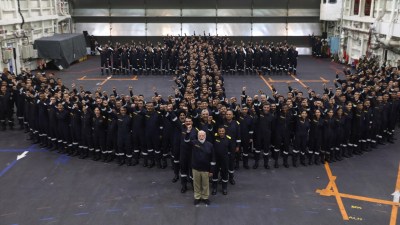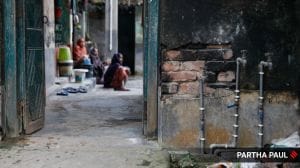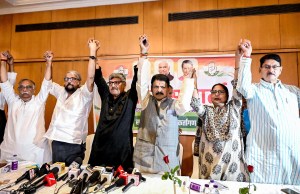Volvo launches FL7 model in India
February 24: Volvo India on Wednesday delivered its second `baby' for the Indian market seven months after its Hoskote plant near Bangalo...

February 24: Volvo India on Wednesday delivered its second `baby’ for the Indian market seven months after its Hoskote plant near Bangalore went into production in June last. The new offering, a 15-30 tonne payload truck christened FL7, comes on the heels of big brother FH12 targeted at the 30 tonne plus segment.
The 4×2 tractor trailer has a 7 litre, 260 bhp (against 160 bhp currently available in the market) turbo-charged and inter-cooled diesel power train coupled with an 8-speed gearbox that offers a competitive advantage over existing products. According to Volvo India Pvt Ltd vice-president for marketing Anton Freiesleben, the entire vehicle has been optimised to save on fuel and would show a 10 to 30 per cent cut in fuel consumption compared to the competition.
The truck is priced at Rs 19.8 lakh with the trailer costing another Rs 3.5 to Rs 5 lakh depending upon the model. The FL7’s performance on the Volvo driver training centre test track was impressive with the power-steering making light work of a stretch at the wheel and the airconditioned safety cabin insulating the inmates from the external noise and vibration levels.
All of which was in keeping with Volvo’s philosophy aimed at improving safety and comfort while cutting driver fatigue and raising productivity levels for the transporter, Freiesleben pointed out. The FL7 could give 50-100 per cent more kilometers per month, he added.
Optimised for sea-container, bulk-tank and refrigeration applications, the tractor-trailer claims higher productivity in terms of haulage capacity, longer hours on the road and the fact that the driver stays in better shape. “Also, for a two-driver operation, the cabin has a comfortable bunk for one of the drivers to rest in while the other drives on,” he said.
Volvo India managing director Ravi Uppal said rigid quality standards had been maintained with extremely low defect levels. He said the company was following an aggressive local integration plan with current indigenisation levels at 45 per cent. The company was looking at increasing it to 50 per cent over the next few months, he added.
Uppal was cagey on the break-even point although he said the plant was operating at full capacity in the present single-shift routine. With two shifts, the plant would reach its full capacity of 4000 vehicles per annum in about five years. He said the company had sold around a hundred FH12s thus far, adding, “you’ll see more on the road every month”.
On the launch of Volvo buses for inter-city transport, he hinted that it could take place by the end of the year. He said the Volvo India plant was currently exporting components to other Volvo factories worldwide but there was no plan to sell the vehicles outside the domestic market in the near future.



- 01
- 02
- 03
- 04
- 05




























